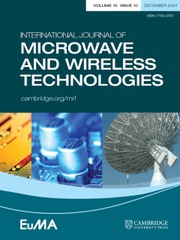This Special Issue of the 20th European Radar Conference (EuRAD 2023) is part of the trilogy of special issues for the European Microwave Week (EuMW 2023), whose 26th edition was held from September 17 to 22, 2023 in Berlin, Germany. As one of the three sister conferences of EuMW, EuRAD took place from September 20 to 22, 2023. EuRAD is Europe’s premier radar conference focusing on cutting-edge radar research, including radar principles and modelling, technologies, signal processing, algorithms and AI, and applications.
Celebrating its 20th anniversary and inspired by the conference motto “Waves beyond Walls,” EuRAD 2023 showcased trends and new developments in all aspects of radar systems across a wide range of civil, security, automotive, defense, and medical applications.
With an impressive number of more than 200 paper submissions in 2023, we are pleased to see a continuously growing interest in the European Radar Conference. Over recent years, EuRAD has become one of the leading radar events, enjoying wide recognition not only in Europe but also globally.
The authors of the top-rated conference contributions have been invited to submit an extended manuscript to the Special Issue of the International Journal of Microwave and Wireless Technologies (IJMWT). All submitted manuscripts underwent the journal’s standard peer review process to ensure quality and relevance. This EuRAD 2023 Special Issue covers a broad variety of highly relevant research topics, such as radar networks, joint communication and sensing, AI, and radar interference.
As the Guest Editor of this EuRAD 2023 Special Issue, I would like to warmly thank all the authors for their excellent contributions, the reviewers for their professional and timely preparation of the reviews, as well as the editorial team and the Editor-in-Chief of IJMWT for their valuable support and time in creating this special issue.
To conclude, I would like to wish you an enjoyable reading of this EuRAD 2023 Special Issue and invite you to submit your research results to the International Journal of Microwave and Wireless Technologies.

Marlene Harter received the Dipl.-Ing. (M.S.E.E.) degree in electrical and information engineering from the Universität Karlsruhe (TH), Karlsruhe, Germany, in 2008, and the Dr.-Ing. (Ph.D.) degree from the Karlsruhe Institute of Technology, Karlsruhe, Germany, in 2014, in cooperation with Siemens AG, Corporate Technology, Munich, Germany.
She joined Robert Bosch GmbH, Leonberg, Germany, in 2014. During this time, she managed several customer radar projects and was project manager of the hardware development of the 5th generation side radar for cars and trucks.
In October 2018, she became a Professor at the Offenburg University, Offenburg, Germany, in the field of RF Technology and Electronics. Since 2022, she is Director of the Institute of Unmanned Aerial Systems.
Her main research interests include radar system architectures, radar signal processing, antenna design, and material characterization.
In 2023, she served as the Technical Program Committee (TPC) Chair of the 20th European Radar Conference (EuRAD), Berlin, Germany.



